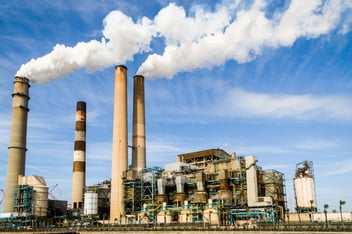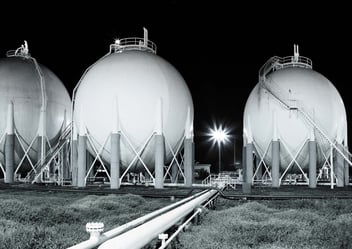Improving Environmental Sustainability With Technology
Many chemical compounds and gases are invisible to the naked eye. Yet many companies work intensively with these substances before, during and after their production processes.
Read moreNatural gas and petroleum systems are the largest source of CH4 emissions in the United Kingdom Methane is the primary component of natural gas. Methane is emitted to the atmosphere during the production, processing, storage, transmission, and distribution of natural gas and the production, refinement, transportation, and storage of crude oil.
Methane, CH4 is emitted from energy, industry, agriculture, and waste management activities. Methane's lifetime in the atmosphere is much shorter than carbon dioxide (CO2), but CH4 is more efficient at trapping radiation than CO2. Pound for pound, the comparative impact of CH4 is more than 25 times greater than CO2 over a 100-year period. Globally, 50-65 percent of total CH4 emissions come from human activities.
If methane leaks into the air before being used – from a leaky pipe, for instance – it absorbs the sun's heat, warming the atmosphere. For this reason, it's considered a greenhouse gas, like carbon dioxide. Hence ensuring its storage and usage is as efficient as possible is in everyone’s interest.
Inspectahire use Optical Gas Imaging technology, advanced Thermal imaging cameras such as the GF320 or GF 77 (dedicated to Methane detection) on a wide range of facilities such as AD & Biogas plants. As the gas emitting is not naturally visible, the use of such technologies is necessary in order to detect such emissions.
The camera incorporates Methane-Specific Spectral Filtering. Targeting the spectral filter improves visualization of methane while also reducing false negatives from gases that absorb in other wavelengths. FLIR’s industry-leading cooled and uncooled optical gas imagers was designed for use by renewable energy producers, at natural gas power plants, and at locations along the natural gas supply chain.
Our technicians are trained thermographers and plant inspectors who can come to your sites and undertake these surveys assisting operators maximise the production of their facility whilst also ensuring regularity compliance.

Many chemical compounds and gases are invisible to the naked eye. Yet many companies work intensively with these substances before, during and after their production processes.
Read more
Inspectahire were recently tasked by Spirit Energy to undertake an OGI (Optical Gas Imaging) inspection by UAV on the Ensign Platform in the Southern North Sea.
Read more
Welcome to our first Inspectahire Industry Insights where this month we focus on the Oil & Gas Industry. We spoke to Cailean Forrester our Managing Director here at Inspectahire who, with more than three decades of experience, is ideally placed ...
Read more